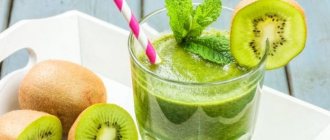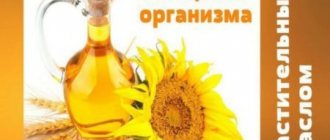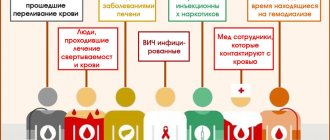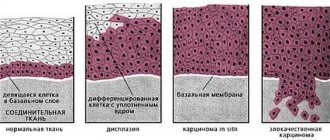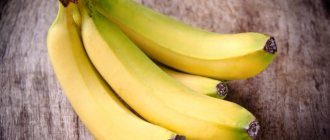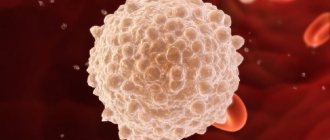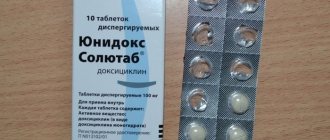Treatment of inflammation of the stomach walls requires patience and diet. In particular, doctors insist on excluding fresh fruits and vegetables from the diet until remission begins. They can only be consumed stewed or baked. Fresh apples, pears, and persimmons for gastritis may not have the best effect on the course of the disease. However, gastroenterologists can make an exception for persimmons. This is truly a special fruit.
The benefits of persimmon
Is persimmon useful if the stomach is in order and there are no problems with the digestive system at all, the question does not arise. This fruit contains a large number of vitamins, microelements and other substances necessary for the body.
Here are just a few of them:
- vitamin A;
- vitamin P;
- vitamin C;
- pectin;
- tannins;
- magnesium;
- iodine;
- potassium.
The composition of nutrients in all varieties of fruit is approximately the same. It is believed that the “Korolek” variety of persimmon is one of the most vitamin-rich species. In addition, this is a soft fruit; it almost completely lacks the astringent effect, which many people do not like.
Vitamins of all groups are involved in metabolism. Today everyone has heard about the antioxidant and anti-inflammatory properties of vitamin C. Magnesium and potassium are needed by the heart to maintain its normal rhythm. Iodine is vital for the thyroid gland - the whole body suffers from its deficiency, as metabolism is disrupted.
Pectin helps absorb and remove toxins from the body. Tannins protect against pathogenic bacteria. The conclusion from the above suggests itself: persimmon is a very healthy fruit for a healthy body.
Chemical composition
Persimmon includes the following vitamins and microelements:
- vitamins A, C, P, E, group B have a positive effect on blood vessels and the heart;
- beta-carotene prevents the formation of cancer cells;
- iodine strengthens the immune system, improves brain performance;
- potassium normalizes blood pressure and reduces allergic reactions;
- calcium strengthens bones, joints, hair, teeth;
- sodium is good for the digestive tract, regulates blood pressure and normalizes heart function;
- phosphorus improves the absorption of vitamins, kidney function, and normalizes hormone production;
- magnesium is beneficial for the nervous, immune and cardiac systems;
- iron includes hemoglobin and saturates all systems with oxygen.
What happens to the stomach during gastritis
Gastritis bothers even people who lead a generally healthy lifestyle. People at risk are those who allow themselves to drink a little too much during a feast, snack on spicy pizza, and are prone to stress. Any of these factors can act as a provocateur of gastritis.
Acute gastritis manifests itself with vivid symptoms. Patients of gastroenterologists note the following signs of trouble:
- pain in the epigastric region;
- feeling of fullness in the stomach;
- heaviness;
- nausea;
- heartburn;
- disturbances in intestinal function.
In the acute course of the disease (and in the chronic stage - in the acute stage), the integrity of the walls of the stomach is disrupted. Imagine - the walls of the organ that digests food have inflammatory damage. At the same time, digestion continues in the stomach, acidic gastric juice and enzymes are released, which in turn aggravate inflammation and superficial changes spread into the thickness of the stomach wall. Ulcers may appear on them (with erosive gastritis) or inflammation destroys the glands that produce hydrochloric acid (with subatrophic gastritis). Gastritis with high acidity is accompanied by heartburn more often than other types, because hydrochloric acid is produced in excess and irritates the walls.
With low acidity, on the contrary, there is not enough gastric juice, food is poorly processed, and damages the walls of the stomach.
Atrophic gastritis is a consequence of long-term chronic gastritis. The parietal cells of the stomach are gradually replaced by altered ones, and the walls of the stomach become thinner. The production of hydrochloric acid is reduced, which prevents proper digestion of food. This is an insidious type of gastritis, since its symptoms are often smoothed out.
Fresh fruits can be harmful for most types of gastritis in the acute stage, further irritating the walls of the stomach and stimulating the production of hydrochloric acid. But persimmon can help. But you should know when you can eat it and when it is better to abstain.
Recommendations for proper nutrition
As soon as the patient has found out what foods cause bloating, it is necessary to create a diet. In order for proper nutrition to be aimed at reducing gases, you should follow some tips.
- Raw vegetables and fruits can form a large accumulation of gases. Therefore, it is better to give them in processed form: bake, steam or boil.
- Vegetable oils can enhance peristalsis. Therefore, when preparing salads, it is better to season them with sunflower or olive oil.
- Fried foods can contribute to gas formation. Therefore, they are completely removed from the diet.
- Anti-bloating products will only be useful if they are not washed down with sweetened drinks.
- Bread that has been left for more than two days can reduce bloating and flatulence. Fresh baked goods should not be eaten.
- Legumes can increase the amount of gases. But not everyone can refuse them. To avoid swelling, the beans must first be soaked in water and wait until they swell.
- Difficult-to-digest foods eaten at night can lead to flatulence. This group includes fish, eggs, meat and mushrooms.
- Water should be taken 20-30 minutes before eating.
- You need to eat in small portions, but often. Don't forget to chew thoroughly.
- Stop chewing gum and smoking.
- Do not drink drinks from straws.
- Not only properly selected anti-bloating products, but also a healthy lifestyle will help overcome the problem. It should consist of giving up bad habits, doing physical exercise and playing sports.
- Avoid stressful situations.
- You can keep a food diary. It is necessary to write down everything that was eaten during the day. This will help determine the product to which the intestines react in a specific way.
When a person knows what foods cause bloating, the problem becomes easier to eliminate than it seemed.
Harm of persimmon for gastritis
Persimmons contain substances called “tannins”. Tannins have tanning properties. Their presence explains the astringency of persimmon, its original feature is to “stick” on the tongue.
On the one hand, tannins help fight pathogenic bacteria, so the body needs them. In particular, they get rid of the insidious Helicobacter pylori, a microorganism that is often found in those suffering from ulcers and gastritis. But, on the other hand, tannins can increase pain in the stomach caused by damage to the walls of this organ, so during exacerbations it is harmful to eat persimmon. The berry does not add acidity to gastric juice; rather, it is neutral in this regard.
Therefore, you can eat persimmons for gastritis, but with certain restrictions. So, with erosive gastritis, you should be careful and exclude this product until the defects heal. In case of atrophy, eating the fruit in small quantities is allowed and even approved by doctors. With stomach and duodenal ulcers, as with any combined pathology, it is necessary to wait until remission begins, and only after that fresh persimmon can be included in the diet.
Is it possible to eat persimmons if you have an ulcer?
Eating persimmon for gastritis and ulcers should be done very carefully so as not to cause discomfort. If the doctor has already given the go-ahead to include fresh fruits and vegetables in the menu, then it is best to eat the berries without the peel. The pulp of the fruit is not so irritating to the mucous membrane.
If duodenitis (inflammation of the duodenum) is added to the stomach disease, the doctors’ recommendations do not change: you must wait until the symptoms of the disease subside. In acute duodenitis, fasting is indicated for the first 24 hours, and then a strict diet until remission.
Is it possible to eat persimmons for pancreatitis and gastritis?
During an acute attack of pancreatitis, it is prohibited to eat any foods. The patient is sent to the hospital, where he is relieved of the exacerbation and is given at least 2-3 completely “hungry” days. Cold, hunger and rest are the basic principles of treating pancreatitis. Then a diet is prescribed, the first days consisting of pureed porridges and slimy soups.
Important! Persimmon for pancreatitis and gastritis is allowed only when the doctor is convinced that the attack has completely stopped.
How does the berry affect concomitant cholecystitis?
With cholecystitis, a large amount of persimmon can provoke the production of bile in large volumes.
Eating persimmon for gastritis in combination with cholecystitis is possible if the patient does not have stones in the gallbladder. Otherwise, the active production of bile can cause the stones to move, and the bile ducts will become blocked. So, you can eat persimmon in very small quantities, carefully monitoring your condition.
When it hurts everyone
Buy persimmons without external defects (Photo: pixabay.com)
When buying persimmons, Elena Solomatina advises choosing only beautiful fruits without external defects. If there are spots, spots or damage on the peel, you should not buy them.
The sweet pulp of the fruit is an excellent environment for the development of pathogenic microorganisms, and after eating such a treat you can get food poisoning. This condition is accompanied by nausea, vomiting, diarrhea, and possibly an increase in temperature due to a gastrointestinal infection.
Dried persimmon
Considering the benefits of persimmon for the stomach, it is advisable to add it to your diet. But since fresh persimmon can increase irritation, it is better to use dried persimmon for gastritis.
In this form, the berry contains less tannins, but it still contains a lot of potassium. In addition, the berry is rich in fiber, which helps improve intestinal function. With gastritis, intestinal dysfunction is often observed.
Do not forget! Dried persimmons are quite high in calories. If the goal is not to gain weight, do not get carried away with it too much.
Products that require limited consumption
Many people know that the main cause of flatulence is poor nutrition. To prevent the recurrence of unpleasant sensations, you should follow a strict diet.
The diet should limit foods that cause gas accumulation. The list of prohibited foods is based on:
- vegetable crops: any types of cabbage, leeks, turnips, radishes, radishes, asparagus, beets, potatoes with a lot of starch;
- legumes: all types of peas, lentils, beans, soybeans;
- mushrooms and yeast, kefir;
- nuts and dried fruits: pistachios, cashews, dates, figs, dried apricots, prunes, raisins;
- products that are rich in lactose. This includes milk, ice cream, chocolate, soft cheeses, cottage cheese and yogurt, sour cream, sauces and creams;
- drinks with added milk or cream, alcohol, starch-based jelly, coffee and chicory, kefir, kvass, carbonated water, concentrated juices;
- fruit and berry crops: apricots, nectarines, peaches, exotic fruits, blackberries and cherries, watermelon, plums and persimmons, apples and pears;
- cereals and pasta: barley, semolina, wheat and barley, fresh baked goods;
- seasonings and spices: mayonnaise, ketchup, garlic;
- fried and boiled eggs;
- semi-finished products: dumplings and dumplings, pies, pancakes;
- canned food, smoked meats, pickles, marinades, jam
- meat dishes;
- sweets: honey, molasses, sugar and sweetener, marmalade, jam, jelly.
In order for bloating and flatulence in the intestines to go away, the diet involves limiting them. Some products are completely prohibited for consumption, but this all depends on the symptoms that appear and the presence of diseases.
| Group | Foods you should not eat if you are bloated |
| Vegetables |
|
| Legumes |
|
| Mushrooms and yeast |
|
| Nuts and dried fruits |
|
| Lactose-rich foods |
|
| Fruits and berries |
|
| Beverages |
|
| Cereals and pasta |
|
| Meat |
|
| Semi-finished products |
|
| Eggs |
|
| Canned food, smoked meats, pickles, marinades and preserves | |
| Seasonings and spices |
|
| Sweets |
|
Baked persimmon recipe for people with gastritis
For chronic gastritis, dishes made from stewed and baked vegetables (fruits) are welcome.
Here is a simple recipe for baked persimmons in the oven for gastritis.
Take 1 persimmon berry, a tablespoon of honey and walnuts. Wash the berries, cut off the top and remove the pulp. Inside the resulting “jug” place a mixture of pulp, chopped nuts and honey.
You can flavor the mixture with a pinch of cinnamon. Close the “jug” with the previously cut top and bake in the oven for 15 minutes at 180 0C.
Persimmon can lift your spirits with just its appearance. And if you also eat this cute dark orange ball, you will certainly gain more strength and vigor. Even gastritis is not an obstacle to eating persimmon. The main thing is to eat it little by little and infrequently, and even better when baked. Then it will not only fill you up, but also help you get rid of stomach problems faster. Treat yourself to sweet persimmons and get well soon!
How to use it correctly
After an exacerbation of the disease, persimmon is introduced into the diet after 2 months.
The fruits are peeled, they must be fully ripe, without rot or damage.
Eat persimmons separately from other foods, but not on an empty stomach.
Baked fruits in the oven are the best option for diseases of the gastrointestinal tract.
Provide a kind of complementary feeding by eating only 1 tsp. pulp per day.
Increase your serving of persimmons regularly.
For food, choose only sweet persimmons, such as honey or chocolate kinglets.
Prevention of poisoning
How to avoid poisoning from dried and fresh persimmons? There are several preventive rules that will help prevent the development of unpleasant symptoms.
Rules:
- It is recommended to purchase fruit at well-known points,
- when choosing, pay attention to the appearance, smell of the fruit,
- Before use, persimmons are thoroughly washed under running water,
- If you experience discomfort from the product, it is recommended to discard it,
- Small children are not given the fruit; adults are allowed to eat up to two pieces per day.
Persimmon poisoning is a food poisoning. With proper assistance, unpleasant symptoms quickly subside. It is not recommended to abuse the fruit in order to avoid serious negative consequences and surgical interventions.
Complex against the background of flatulence.
Hello forum members. Can anyone tell me who got rid of flatulence?! No matter what I eat, my stomach constantly swells. I've been living like this for 7 years now. I even developed a complex when meeting men. I can't go on a date. Sitting in a cafe is just hell for me. How to live with a man? How to go on vacation? Constant discomfort in the abdomen. I went to different clinics. There is only one answer - nothing to worry about. It's all on an emotional level. Drink some kefir, some mezim and everything will pass. I just want to howl like a beluga. And on a diet, it’s always just porridge and everything boiled. I can’t eat fruit at all - I become a ball. Where do you get your vitamins from then? What to do?! Vicious circle. The doctor found only a bend in the gallbladder.
Woman.ru experts
Find out the opinion of an expert on your topic
Svetlana Filippova
Psychologist, Sexologist. Specialist from the site b17.ru
Korotina Svetlana Yurievna
Psychotherapist. Specialist from the site b17.ru
Spiridonova Nadezhda Viktorovna
Psychologist. Specialist from the site b17.ru
Anastasia Sergeevna Shikhaleeva
Psychologist. Specialist from the site b17.ru
Kuzmin Ivan Ivanovich
Psychotherapist, Supervisor. Specialist from the site b17.ru
Volkov Roman Leonidovich
Psychologist, Psychoanalytic therapist. Specialist from the site b17.ru
Veronica Viktorovna Dobroselskaya
Psychologist, Weight correction. Specialist from the site b17.ru
Ekaterina Denisova
Psychologist, Medical psychologist. Specialist from the site b17.ru
Nekrasova Natalia
Psychologist. Specialist from the site b17.ru
Selection rules
You should not buy the first persimmon you take; you need to carefully examine it, paying attention to ripeness, freshness and damage to the skin. So, if you eat unripe fruits, pain will occur in the digestive organs, so in order to prevent harm to persimmons, you need to choose products taking into account the following requirements:
PAY ATTENTION! Do not prolong gastritis or an ulcer until stomach cancer, it is better to be on the safe side, but this will be necessary. read the story of Galina Savina >>
- The pulp is jelly-like and has a runny consistency.
- The peel is hard and smooth. There should be no dark spots on it.
- The bright orange color indicates the ripeness of the product.
- The leaves of the ripe fruit are brown.
Only the right tart fruit will be most beneficial for the body and will not cause stomach pain.
